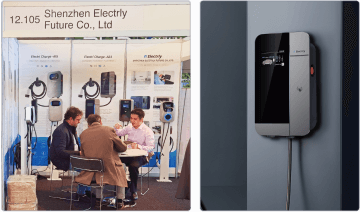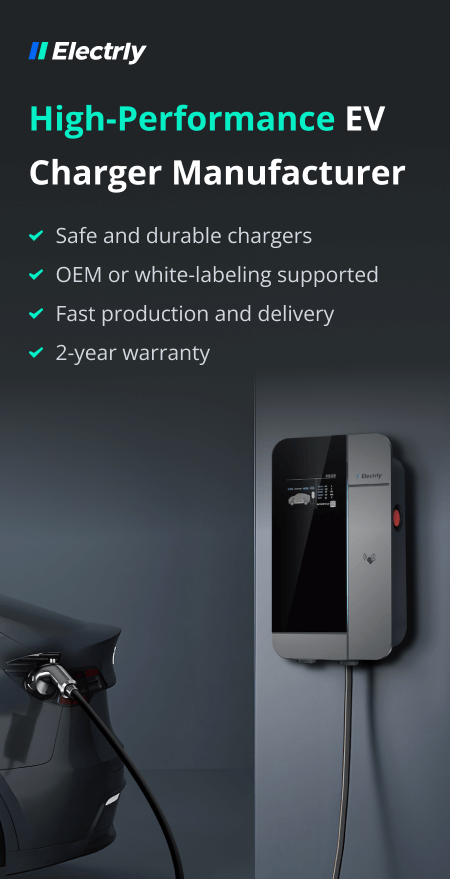As electric vehicles continue to grow in popularity, the Nissan Leaf has remained a top contender in the market. One of the most important factors to consider when buying an electric vehicle is the battery life, which is why we're here to discuss the battery life of the Nissan Leaf.
In this article from Electrly, we will explore the ins and outs of the Leaf's battery options while explaining the maintenance of both available trim levels of the 2023 Nissan Leaf, the S, and SV Plus.
What Kind of Battery Does A 2023 Nissan Leaf Equip With?
The 2023 Nissan Leaf comes equipped with a Lithium-ion battery pack that provides reliable and long-lasting performance. This advanced battery technology is designed to offer maximum efficiency and durability, allowing drivers to enjoy an extended range and reduced charging times.
With the Leaf's cutting-edge battery technology, you can experience a smooth, quiet, and eco-friendly ride without sacrificing power or performance.
How Long Do Nissan Leaf Batteries Last?
The battery life of the 2023 Nissan Leaf is a critical consideration for potential buyers. The good news is that the Leaf's batteries are designed to last a long time, with an estimated life expectancy of 8-10 years or 150,000 miles. Additionally, Nissan offers an impressive 8-year/100,000-mile battery warranty to provide owners with extra peace of mind.
The actual battery life of most EVs may depend on several factors, including driving styles, charging habits, weather conditions, and maintenance. Nevertheless, with proper care, the Leaf's battery can provide reliable and worry-free performance for years to come.
Battery Capacity and Range of 2023 Nissan Leaf
The battery pack of the 2023 Nissan Leaf is available in two different sizes for the two trim levels, the S and the SV Plus. The S comes with a 40 kWh battery pack, while the SV Plus comes with a larger 60 kWh battery pack.
The estimated range for the S trim is up to 149 miles, while the SV Plus trim can go up to 212 miles on a single charge. However, it's important to note that the actual range may depend on various factors such as driving habits, weather conditions, and vehicle settings.
How Can I Charge The Nissan Leaf Battery?
Portable Level 1 Charger (S & SV Plus)
The portable EVSE (Electric Vehicle Supply Equipment) Level 1 charger is the standard come-with-the-vehicle charging equipment for the Nissan Leaf. It can be directly plugged into any standard 120-volt outlet. However, keep in mind that Level 1 charging is the slowest option and it can take up to days for a full charge.
Level 2 Charging Stations (S & SV Plus)
For faster charging times, the Leaf S and SV Plus can be charged using a Level 2 charging station from a 240-volt outlet. Both the S & SV Plus trim is equipped with a Type 1 J1772 socket for Level 2 charging. Depending on the charging station's power delivery, it can take around 3 hours for a full charge.
Level 3 DC Charging (SV Plus)
The Leaf SV Plus is equipped with a CHAdeMO DC Charging port that allows for even higher charging efficiency. Level 3 DC charging can “refuel” the battery of your Nissan Leaf up to 80% in just 45 minutes. Note that actual charging times may vary depending on the station's power output and the battery's current charge level.
What Should I Do To Maintain and Extend The Battery Life of A Nissan Leaf?
It's important to note that battery degradation is a natural process that occurs over time and usage. However, following the tips below can help slow down the degradation process and extend the lifespan of your Nissan Leaf's battery.
Driving Style
To extend the battery life of your Nissan Leaf, it's important to adopt a smooth driving style. Avoid harsh acceleration and braking as they can wear out the battery more quickly. Use the ECO mode, which limits power and throttle response to reduce momentary energy consumption and extend battery life.
Fast Charging
Frequent fast charging can degrade the battery faster over time. To minimize this, it's recommended to limit fast charging to 80% of the battery's capacity, which can be set through the car's settings. Use Level 2 or Level 1 charging for day-to-day charging needs, and reserve fast charging for emergency situations.
Battery Level
Maintaining the battery level between 20% to 80% can help extend its lifespan. Avoid letting the battery level drop below 20% and don't charge it to 100% unless necessary. Charging to full capacity can cause the battery to degrade more quickly.
Battery Temperature
Extreme temperatures can have a negative impact on the battery's lifespan. Avoid exposing the car to excessive heat or cold for extended periods, such as parking it in direct sunlight or leaving it out in freezing temperatures. If possible, park the car in a garage or under a covered area to protect it from the extreme ambient temperature.
FAQs
1. How much does it cost to replace the battery of my 2023 Nissan Leaf?
The cost of replacing the battery pack in a Nissan Leaf will depend on the size of the pack. The 40 kWh pack can cost between $6,500 to $7,500, while a replacement for the 60 kWh pack could range from $10,000 to $15,000.
Additional labor costs could add up to $1,000, leading to a total replacement cost between $4,500 to $16,000, depending on the pack size and manufacturing year of the replacement.
2. Will the battery degradation of my Nissan Leaf affect my daily usage?
Over time, battery degradation can affect the overall capacity and range of your Nissan Leaf. This means that as the battery loses its ability to hold a charge, you may need to charge more often and experience a shorter range between charges. Depending on your driving habits and usage, this could potentially impact your daily driving experience.
3. What if my Nissan Leaf ran out of battery on the road?
If your Nissan Leaf runs out of battery on the road, Nissan provides 24/7 roadside assistance for the first 36,000 miles of ownership. The assistance program includes towing to the nearest Nissan dealership, charging station, or your home within a certain distance.
It's always a good idea to plan your routes and charging stops accordingly to avoid running out of battery while on the road. Additionally, it's recommended to have a backup charging plan in case of emergency situations.


